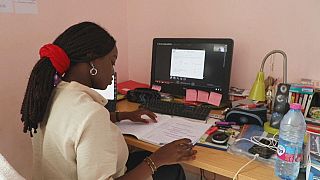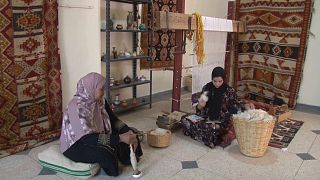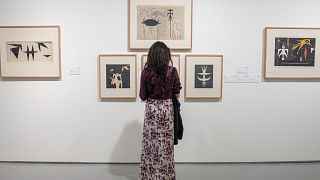Morocco
**The International Monetary Fund (IMF) and the World Bank are gathering in Marrakech, Morocco this week for theirannual meeting, fifty years since their last gathering on the continent. **
The two institutions traditionally hold their week-long meeting away from their Washington headquarters every two or three years.
After two postponements due to the COVID-19 pandemic, and the threat of a third delay due to last month's earthquake in Morocco, the meeting will finally kick off on Monday.
The choice of location is particularly significant given the numerous challenges Africa is facing. Several countries are struggling with a debt crisis, while the consequences of climate change and a poverty rate which is reducing at a slower rate than elsewhere are hitting the continent hard.
"A prosperous Africa"
During the meeting's opening speech, delivered Thursday in Abidjan, Côte d'Ivoire, IMF Managing Director Kristalina Georgieva stressed that "a prosperous 21st century requires a prosperous Africa".
One of the first measures to be discussed the creation of a third seat granted to African countries on the boards of directors of each of the two institutions.
Beyond this largely symbolic gesture, the main goals of both institutions are poverty reduction, helping countries in difficulty and, above all, climate financing.
Yet, funding remains a problem, with the main countries not in favour of a capital increase that would oblige them to fork out more or add more clout to the large emerging countries, with China and India in the lead.
Lack of will
Both the IMF and the World Bank use billions in loans and assistance to support struggling economies.
An additional $50 billion is expected to be confirmed this week for use over the next ten years, while Ajay Banga, the World Bank's president, hopes to bring the total to 100 or 125 billion dollars, thanks to contributions from advanced economies without having to adjust the institution's capital structure.
The two institutions are not without their critics, however, with some accusing them of pushing for austerity and widening the gap between the world's rich countries and poor.
In June, the United Nations' Secretary General Antonio Guterres voiced his criticism, saying the World Bank and the IMF's response to the COVID-19 pandemic was a "glaring failure" that left dozens of countries indebted.
The week in Marrakech is unlikely to see any major breakthroughs, especially on the subject of climate financing, with NGOs criticising what they see as a lack of will on the part of the institutions.











01:22
World will have to learn to live with heatwaves, UN says
Go to video
World Bank grants South Africa $1.5B for infrastructure, green energy
01:46
Poverty drives instability, conflict - UN chief
00:24
Greenland and Iceland saw record heat in May
01:03
Ethiopia to post faster growth despite debt, inflation
01:30
Macron sparks global push to protect oceans